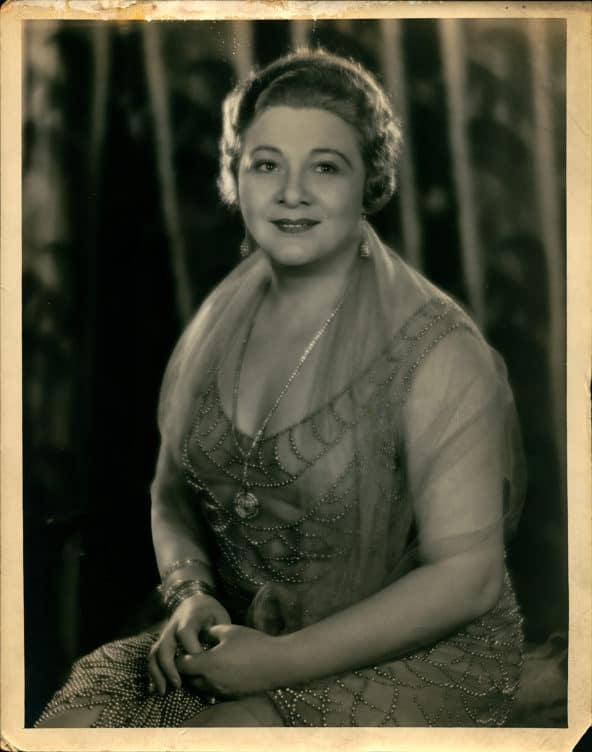Vaudeville

Photo Credit: Hennepin County Library
Sophie Tucker
Comedian
Excerpts from Museum of the City of New York:
Sophie Tucker was a Jewish vaudevillian and Broadway star. Throughout her fifty-year career, she starred in numerous Broadway productions and films. She was notable for performing songs in Yiddish and for flaunting her large figure and sexuality. She had a lasting impact in musical theater and directly influenced other female singers and performers.
Sophie Tucker, originally Sophie Kalish, was born in Russia in 1884 to a Jewish family in the midst of immigrating to America. Raised in Hartford, Connecticut as Sophie Abuza, she began singing in her family’s restaurant for tips. When she was sixteen, she married Louis Tuck, but shortly after her son Albert’s birth in 1906, she asked for a separation and moved to New York City. She changed her last name to Tucker and was introduced to the famous composer Harold Von Tilzer. She quickly became popular among vaudeville audiences, singing in both English and Yiddish. In 1921, she began a lifelong collaboration with Ted Shapiro, who frequently accompanied Tucker on piano and provided patter in between songs. Her most notable songs included “Some of These Days” and “My Yiddishe Momme.” Starting in 1929 with the film Honky Tonk, she also led a career as a screen actor, appearing alongside Judy Garland, Mickey Rooney, and Robert Taylor in films such as Thoroughbreds Don’t Cry and Broadway Melody of 1938. She also made regular appearances on radio and in her later years performed on television programs such as The Ed Sullivan Show and The Tonight Show Starring Johnny Carson. She was well known for her philanthropy, donating regularly to a number of different organizations, including the Jewish Theatrical Guild, the Negro Actors Guild, and the Catholic Actors Guild. She has had a lasting influence on Jewish culture as well as feminism, flaunting her figure, sexuality, and independence openly. She has been cited as a major inspiration by many female performers, especially Bette Midler, who created a character based on Tucker. On February 9, 1966, Tucker died of kidney failure in New York City.
For more about Sophie Tucker visit: https://mcnycatablog.org/2017/09/25/sophie-tucker-collection-ca-1890-1966/